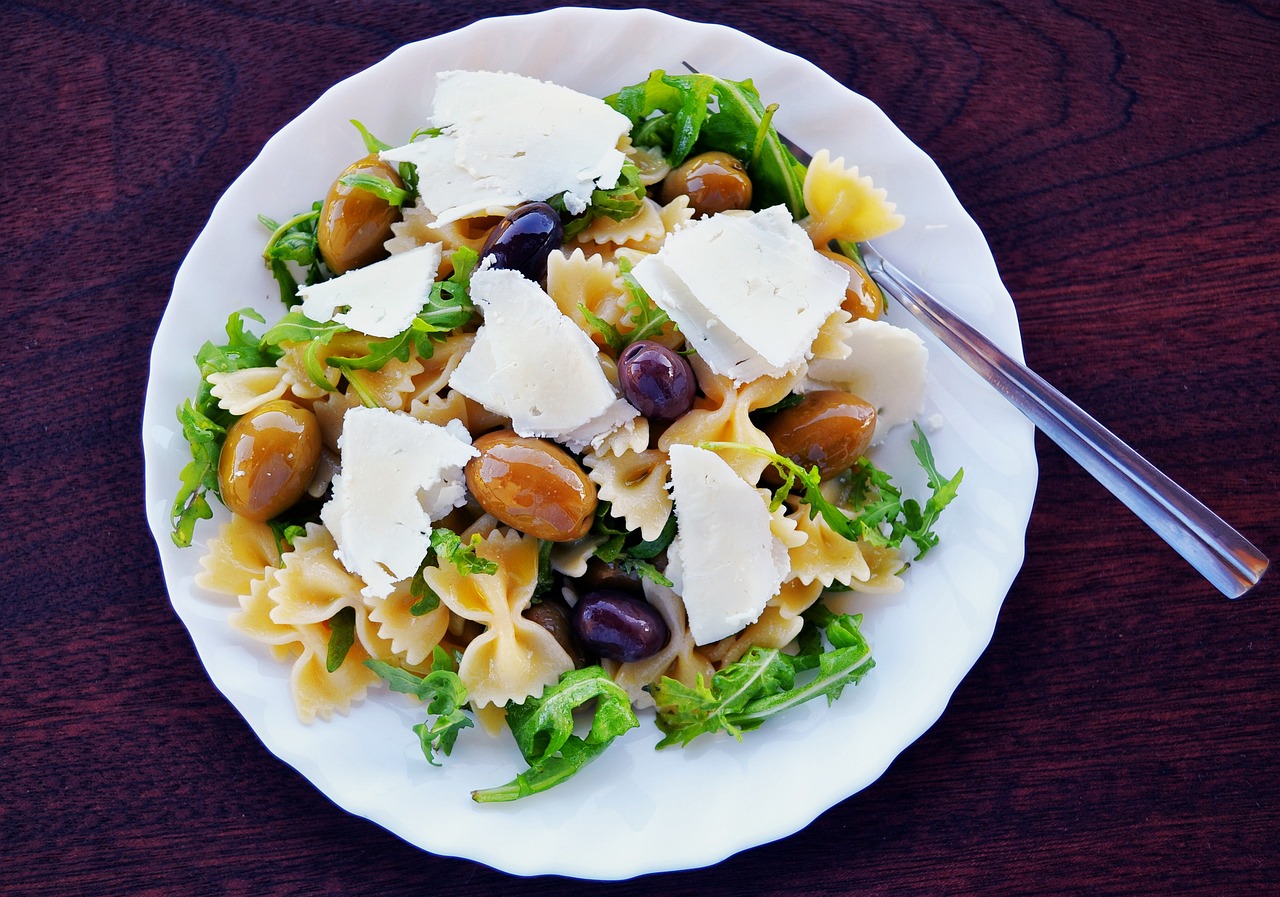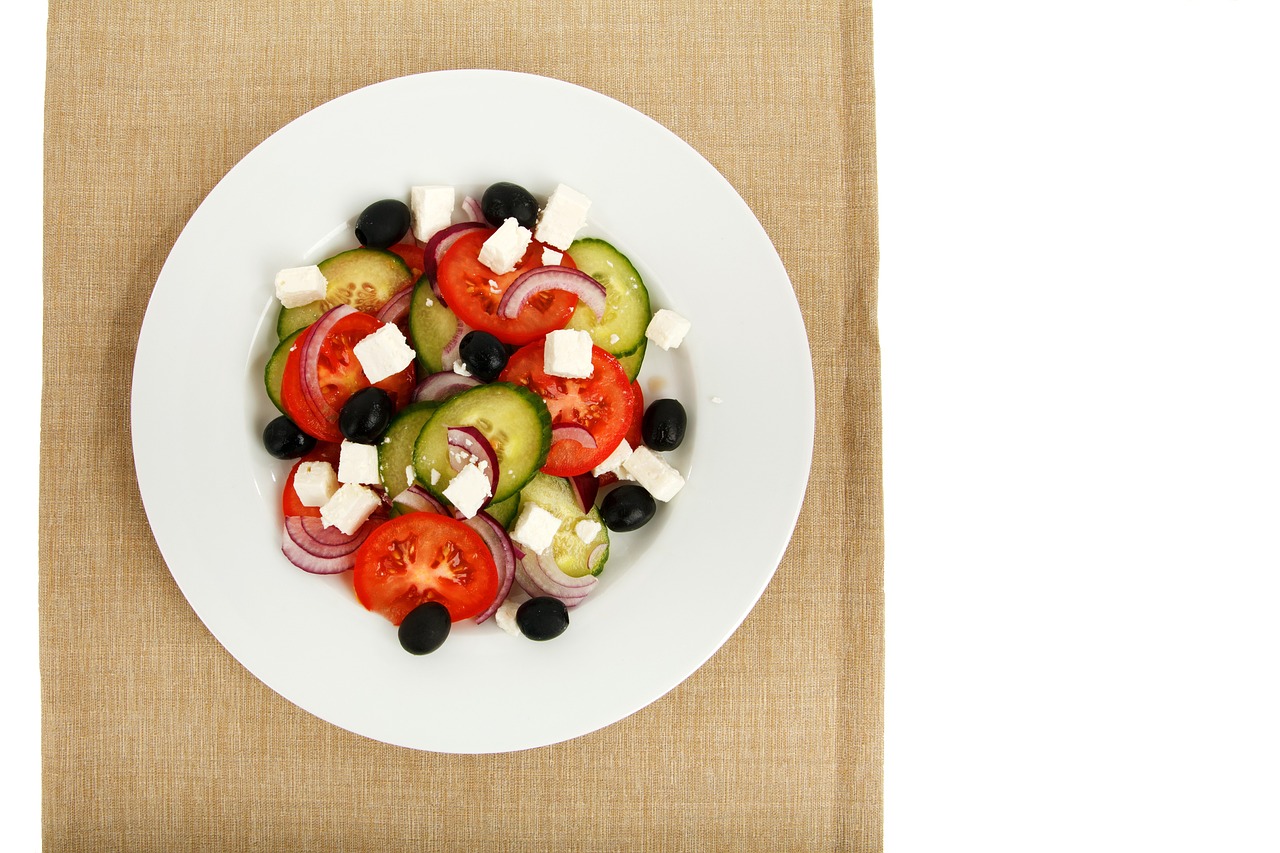Discover the key to a healthier lifestyle with “The Secrets of Mediterranean Diet Success.” Tastepan provides a treasure trove of nutritious and delicious recipes that prioritize your well-being. With a focus on wholesome meal ideas, dietary tips, and expert advice, you can nourish your body without compromising on flavor. Embrace the Mediterranean diet and unlock the secrets to a balanced and fulfilling way of eating.

Benefits of the Mediterranean Diet
The Mediterranean Diet is not just a way of eating, but a lifestyle that promotes overall well-being. This diet has been consistently linked to a reduced risk of chronic diseases, making it a popular choice among health-conscious individuals. By following the Mediterranean Diet, you can improve your weight management, enhance heart health, and enjoy a multitude of other benefits.
Reduced Risk of Chronic Diseases
One of the main reasons why the Mediterranean Diet is highly recommended is its association with a reduced risk of chronic diseases. Numerous scientific studies have shown that following this diet can lower the risk of cardiovascular diseases, certain types of cancer, and even neurodegenerative conditions like Alzheimer’s disease. The high intake of fruits, vegetables, whole grains, and healthy fats in the Mediterranean Diet provide essential nutrients and antioxidants that promote optimal health and protect against various illnesses.
Weight Management
Another significant advantage of the Mediterranean Diet is its effectiveness in weight management. Unlike restrictive diets, the Mediterranean Diet promotes a balanced approach to eating that focuses on whole, nutrient-dense foods. By emphasizing plant-based foods, portion control, and limited consumption of processed foods, you can achieve a healthy weight and sustain it in the long term. Additionally, the Mediterranean Diet encourages regular physical activity, which further aids in weight management and overall fitness.
Improved Heart Health
Heart disease is a leading cause of mortality worldwide, but the Mediterranean Diet offers a natural and enjoyable way to improve heart health. The diet’s emphasis on healthy fats, such as olive oil and nuts, provides essential monounsaturated and polyunsaturated fats that are beneficial for cardiovascular health. These fats help lower LDL cholesterol levels, reduce inflammation, and maintain healthy blood pressure. Additionally, the Mediterranean Diet includes foods rich in antioxidants, such as fruits, vegetables, and whole grains, which have been shown to support heart health and reduce the risk of heart disease.
Key Components of the Mediterranean Diet
In order to fully reap the benefits of the Mediterranean Diet, it’s important to understand its key components. By following these principles, you can create a balanced and nutritious eating plan that aligns with the Mediterranean lifestyle.
Plant-Based Foods
The foundation of the Mediterranean Diet is plant-based foods. Fruits, vegetables, legumes, whole grains, nuts, and seeds are prominent features of this diet. These foods are packed with vitamins, minerals, fiber, and antioxidants that can support overall health and well-being. Emphasizing a wide variety of colorful fruits and vegetables ensures that you receive ample nutrients and phytochemicals. Additionally, whole grains like barley, couscous, and quinoa provide complex carbohydrates and fiber, contributing to sustained energy levels and digestive health.
Healthy Fats
Contrary to popular belief, not all fats are unhealthy. In fact, the Mediterranean Diet encourages the consumption of healthy fats, such as olive oil, avocados, and nuts. These fats are rich in mono and polyunsaturated fatty acids, which have been shown to have various health benefits. Olive oil, in particular, is a staple in Mediterranean cuisine and is known for its high levels of antioxidants and anti-inflammatory properties. Incorporating these healthy fats into your diet can enhance nutrient absorption, promote satiety, and support brain health.
Moderate Consumption of Dairy Products
While dairy products are not as heavily consumed in the Mediterranean Diet compared to other diets, they can still be included in moderation. Traditional Mediterranean diets often include moderate amounts of yogurt and cheese, which provide calcium and protein. However, it is important to choose high-quality, preferably organic, dairy products and consume them in moderation. If you prefer a non-dairy alternative, there are plenty of plant-based options available, such as almond milk and coconut yogurt, that can still provide the necessary nutrients.

Emphasis on Fresh and Local Ingredients
One of the defining characteristics of the Mediterranean Diet is its emphasis on fresh and local ingredients. Traditional Mediterranean cuisine relies heavily on seasonal produce, locally-sourced meat and seafood, and minimal processed foods. This approach not only enhances the flavor and nutritional quality of the meals but also reduces the consumption of additives and preservatives commonly found in processed foods.
Seasonal Produce
Seasonal produce is celebrated and cherished in Mediterranean cuisine. By choosing fruits and vegetables that are in season, you not only support local farmers but also ensure that you are consuming the freshest and most nutrient-dense produce available. Seasonal fruits and vegetables are often more flavorful, affordable, and readily available. This approach encourages variety in your diet, as different seasons offer a diverse range of produce to enjoy.
Locally-Sourced Meat and Seafood
In addition to seasonal produce, the Mediterranean Diet places importance on consuming locally-sourced meat and seafood. Opting for grass-fed or pasture-raised meat, as well as wild-caught fish, ensures higher quality and greater nutritional benefits. Locally-sourced meat is often leaner and contains less saturated fat compared to conventionally raised meat. Similarly, wild-caught fish is rich in omega-3 fatty acids, which have been linked to numerous health benefits, including heart health and brain function. By supporting local producers and fishermen, you also contribute to the sustainability of the environment and local economies.
The Role of Olive Oil
Olive oil is an essential component of the Mediterranean Diet and is considered one of the healthiest fats available. Its use in Mediterranean cuisine not only adds flavor but also brings numerous health benefits to the table.
Health Benefits of Olive Oil
Olive oil is renowned for its abundance of monounsaturated fats, which have been found to promote heart health, reduce inflammation, and improve cholesterol levels. The polyphenols present in olive oil act as antioxidants and possess anti-inflammatory properties that can help protect against chronic diseases. Additionally, olive oil is a great source of vitamin E and other beneficial compounds that support skin health and overall well-being.
Different Varieties of Olive Oil
When it comes to olive oil, there are various types to choose from, each with its own unique flavor profile and recommended uses. Extra virgin olive oil, obtained through cold pressing and without the use of chemicals, is considered the highest quality and most flavorful olive oil. It is best used for dressings, marinades, and drizzling over cooked dishes to enhance the flavor. Virgin olive oil is slightly less flavorful and is suitable for cooking at moderate temperatures. Other options include light olive oil, which has a milder flavor, and olive pomace oil, which is made from the residue of the olive pressing process.

Enjoyment of Wine in Moderation
The Mediterranean Diet also recognizes the enjoyment of wine in moderation as part of a balanced lifestyle. Wine has been consumed for centuries in Mediterranean cultures and is often included in meals and social gatherings.
Benefits of Moderate Wine Consumption
Moderate wine consumption, defined as one glass per day for women and up to two glasses per day for men, has been associated with several health benefits. Red wine, in particular, contains antioxidants, such as resveratrol, that have been shown to have anti-inflammatory and heart-protective effects. These antioxidants may contribute to the lower incidence of heart disease in Mediterranean countries. However, it’s important to note that excessive alcohol consumption can have detrimental health effects, so moderation is key.
Types of Wine in the Mediterranean Diet
The Mediterranean region is known for its diverse wine offerings, with each country having its own unique varieties and styles. Red wines, such as Italian Chianti, Spanish Rioja, and Greek Agiorgitiko, are commonly enjoyed in the Mediterranean Diet. These red wines tend to have richer flavors and higher levels of antioxidants. However, white wines, such as Italian Pinot Grigio and French Sancerre, are also prevalent and offer a refreshing option. The key is to choose wines that complement your meals and personal preferences, and to always drink responsibly.
Social and Cultural Aspects of the Mediterranean Diet
The Mediterranean Diet goes beyond just what you eat – it encompasses the social and cultural aspects of food and dining. Understanding and embracing these aspects can enhance your overall enjoyment and adherence to the diet.
Eating as a Social Activity
In Mediterranean cultures, food is often enjoyed in the company of others. Meals are seen as a time for socializing, connecting, and sharing meaningful experiences. By embracing the social aspect of eating, you can create a more enjoyable and fulfilling dining experience. Whether it’s gathering with family and friends for a leisurely meal or hosting a Mediterranean-inspired dinner party, sharing food with others fosters a sense of community and promotes overall well-being.
Traditions and Festivities
The Mediterranean region is rich in cultural traditions and festivities that revolve around food. From Greek Easter celebrations to Italian pasta-making festivals, food is woven into the fabric of Mediterranean life. Exploring and embracing these traditions can deepen your appreciation for the Mediterranean lifestyle and further motivate you to follow the diet. By incorporating Mediterranean traditions and festivities into your own life, you can create lasting memories and make the diet a sustainable part of your lifestyle.
Meal Planning and Preparation Tips
Successfully adopting the Mediterranean Diet requires some planning and preparation. By incorporating these practical tips into your routine, you can make the transition to a Mediterranean-inspired way of eating much easier.
Batch Cooking and Meal Prep
To save time and ensure that you have Mediterranean-friendly meals readily available, consider batch cooking and meal prepping. Set aside dedicated time each week to prepare larger quantities of staple foods, such as whole grains, beans, and roasted vegetables. These can be portioned into containers and refrigerated or frozen for later use. Having these components on hand allows you to create quick and balanced meals throughout the week, reducing the temptation to reach for less healthy options.
Incorporating Mediterranean Ingredients into Your Meals
Another tip for success is to gradually incorporate Mediterranean ingredients into your existing meals. Start by adding more vegetables to your dishes or swapping butter for olive oil. Gradually introduce new ingredients, such as whole grains, legumes, and fresh herbs, to diversify your meals and enhance their nutritional value. As you become more comfortable with the flavors and preparation methods, you can experiment with traditional Mediterranean recipes and create your own Mediterranean-inspired dishes.
Sample Mediterranean Diet Meal Plan
To help you get started on your Mediterranean Diet journey, here is a sample meal plan that showcases the rich and diverse flavors of this lifestyle.
Breakfast Ideas
- Poached eggs with sautéed spinach, cherry tomatoes, and a drizzle of olive oil
- Greek yogurt topped with fresh berries, a sprinkle of nuts, and a drizzle of honey
- Whole grain toast with mashed avocado and sliced tomato
Lunch and Dinner Options
- Chickpea salad with mixed greens, cucumbers, bell peppers, olives, feta cheese, and a lemon-olive oil dressing
- Grilled chicken kebabs with colorful vegetable skewers and a side of quinoa
- Baked salmon with roasted Mediterranean vegetables and a squeeze of fresh lemon
Snacks and Desserts
- Hummus and sliced vegetables, such as bell peppers, carrots, and cucumber
- Fresh fruit salad with a dollop of Greek yogurt and a sprinkle of cinnamon
- Almonds or walnuts paired with a piece of dark chocolate
Tips for Long-Term Success
While starting the Mediterranean Diet may seem overwhelming at first, with time and perseverance, it can become a sustainable and enjoyable way of life. Here are some tips to help you achieve long-term success with the Mediterranean Diet.
Gradual Transition and Lifestyle Adaptation
Instead of completely overhauling your diet overnight, aim for a gradual transition by incorporating Mediterranean principles one step at a time. Start by making small changes, such as increasing your intake of fruits and vegetables or switching to olive oil for cooking. As these changes become habits, you can add more Mediterranean-inspired meals and ingredients into your routine. Remember, the Mediterranean Diet is not a strict set of rules, but rather a flexible framework that can be tailored to suit your preferences and lifestyle.
Finding Mediterranean-Inspired Restaurants and Recipe Sources
Exploring Mediterranean cuisine is made easier by seeking out restaurants that offer Mediterranean-inspired dishes. Many establishments now offer diverse menus that feature Mediterranean flavors and ingredients. Additionally, there are countless online resources, cookbooks, and recipe websites dedicated to Mediterranean cooking. These sources can provide inspiration and guidance as you continue to explore the flavors and variety of the Mediterranean Diet.
Conclusion
The Mediterranean Diet is more than just a way of eating – it is a lifestyle that promotes overall health, enjoyment of food, and a sense of community. By incorporating plant-based foods, healthy fats, and a wide range of fresh ingredients into your meals, you can reduce the risk of chronic diseases, manage your weight, and enhance your heart health. Embracing the social and cultural aspects of the Mediterranean Diet can make the journey even more enriching and enjoyable. So why not embark on your Mediterranean Diet adventure today and savor the delicious flavors and benefits it has to offer?

